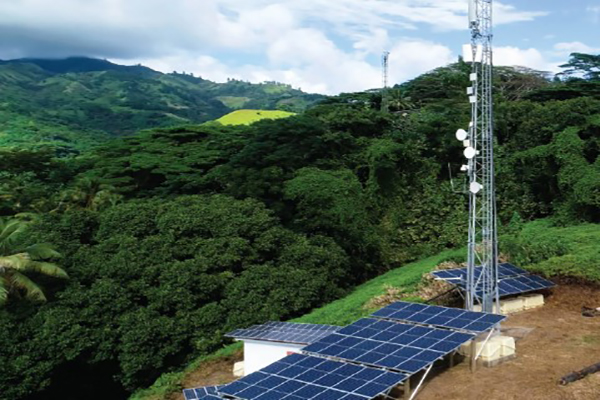Amidst the growing environmental concerns, sustainability is no longer a choice. In a bid to adopt a more natural lifestyle, a major chunk of individuals are moving to environment-friendly alternatives. As per a Bain & Company report, sustainability is becoming a popular option in India, where 20% of consumers are socially and ecologically conscious while 49% of consumers are health-conscious.
Given the rising trend of mindful consumerism, it has led upon industries to adopt sustainable practices and telecom is no exception to it. According to a Mordor Intelligence report, The Indian Telecom market size is projected to increase at a CAGR of 9.40% from $203.43 billion in 2023 to $209.62 billion by 2028. The growth of the telecom sector can be attributed to increased demand for digital communications as well as growth in industries such as IoT, cloud, data centers, and 5G. This, as a result, has forced the telecom businesses to utilize additional energy. Moreover, the total population of internet users globally stood at 5.18 billion in 2023, according to Statista, indicating an increase in internet traffic worldwide. As a result, there has been a noticeable increase in waste and carbon emissions from the telecom and IT sectors. And what makes it worse is the deployment of 5G and fiber to extend reach.
In a bid to ensure they are fulfilling the needs of end users while reducing their carbon footprint, telecom operators are actively looking for sustainable solutions. Enters green telecom, an innovative concept whose core operations revolve around energy-effective technology, resilient network structure and carbon emission reduction.
Ways telecom operators are reducing their carbon footprint
In response to rising demand for resilient digital connectivity and conscious consumerism, telecom operators are largely embracing green solutions. Optimizing energy consumption, telecom businesses are actively shifting to energy-efficient hardware such as low-power base stations and intelligent network management systems. To further meet the quality criteria set by TRAI (Telecom Regulatory Authority of India), telecom towers have begun to deploy diesel-free sites while adopting greater grid power availability. Moreover, the shift to 5G offers a special opportunity to develop quicker, more environmentally friendly networks.
Along with energy optimization, the shift to renewable sources of energy has provided the telecom business with constructive means to reduce their carbon footprint. By employing renewable energy sources like solar and wind to power their network infrastructure, telecom companies have deliberately decreased their dependence on fossil fuels. Moreover, refurbishing their current arrangements with energy-efficient solutions has further provided them with an astounding opportunity to pursue the carbon-free emission goal.
In conjunction with energy-efficient solutions, submerged data centers represent a revolutionary approach to cooling and power consumption. Underwater, these centers use natural water cooling to keep servers at the perfect temperature. In addition, further boosting energy efficiency in telecom operations, liquid and free cooling techniques come in as a promising solution. Furthermore, network optimization through advanced algorithms, dynamic spectrum access, and IoT-enabled optimizations can further improve network operations for increased energy efficiency.
The road to a sustainable future
Instead of viewing sustainability as a paltry expense, telecom operators are largely prioritizing it at the core of their operations. Adopting energy-efficient solutions and ESG practices, telecom businesses are largely rooting for green, sustainable telecom.
Global telecom companies will be able to cut their carbon footprint by 2%, or 12 million tonnes of carbon dioxide equivalent (CO2e), by 2024 and 2025, according to Deloitte. As consumers increasingly prioritize sustainable practices, telecom companies at the behest of sustainable solutions will stand tall in leading the path towards a more environmentally conscious world.

















